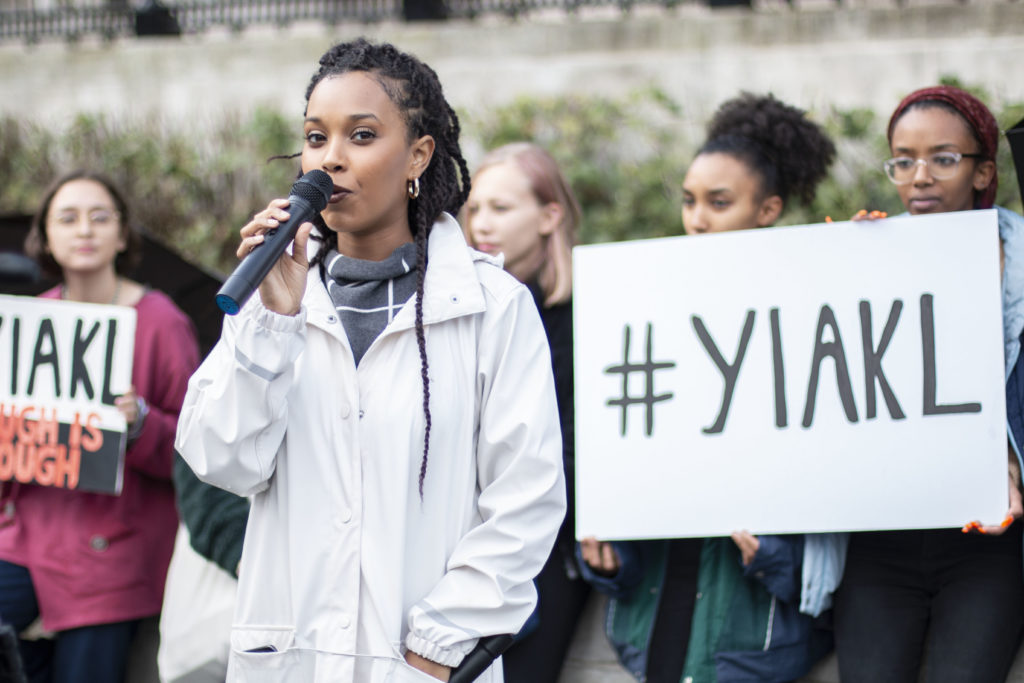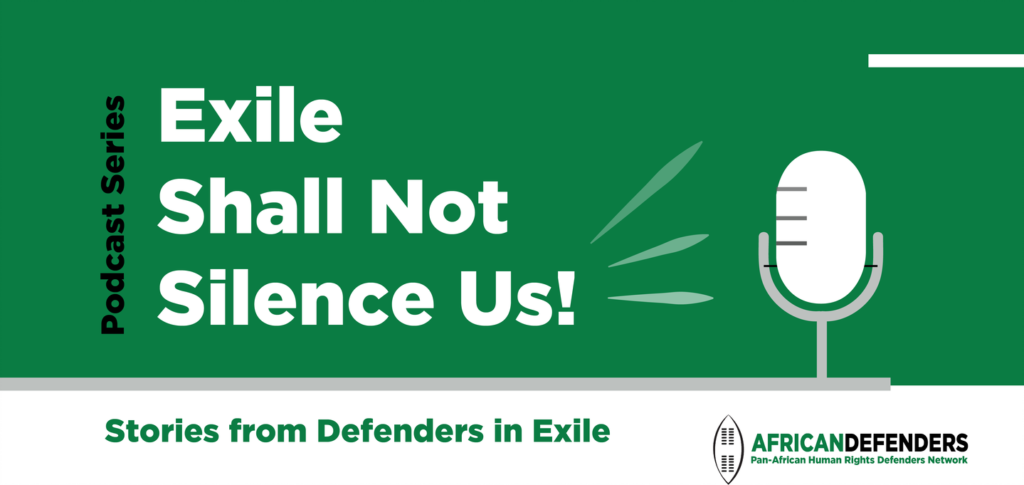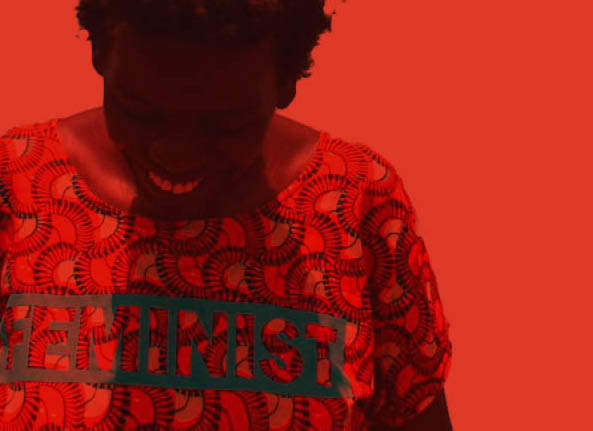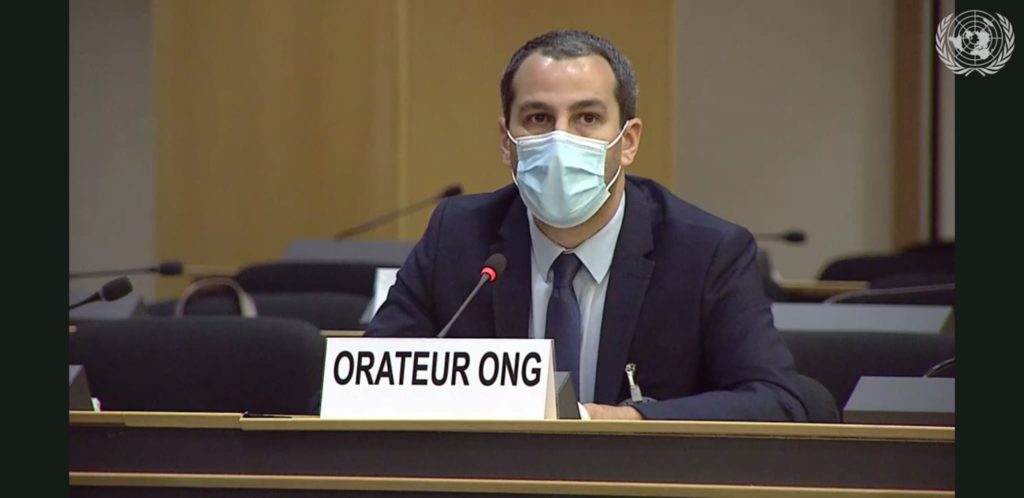Dear friends and colleagues,
George Floyd’s murder has sparked unprecedented global outrage. Thousands of people in more than 4,000 cities around the world have made use of their right to peaceful assembly and condemned systemic racism and police brutality. DefendDefenders stands with the protesters and welcomes that the Black Lives Matter movement has now also reached the African continent. Moussa Faki Mahamat, Chairperson of the African Union (AU) Commission, has condemned the murder and the UN Human Rights Council (HRC) has, in an unprecedented move, held an urgent debate on racially inspired human rights violations during its 43rd session and consequently adopted a resolution on 19 June.
Unprecedented as well, was the length of the 43rd HRC session, which began on 24 February and was concluded on 23 June 2020, having resumed after a three–month suspension due to the COVID-19 pandemic. DefendDefenders’ Geneva office proved to be an invaluable asset in these difficult times, as access to UN premises remains limited and travel to Geneva impossible for most nationals of East and Horn of Africa countries. To learn more about our advocacy work at the HRC, you can read my reflections on the 43rd session and follow DefendDefenders on Twitter, to stay updated on the 44th session, which started on 30 June and is expected to end on 17 or 20 July.
As COVID-19 lockdowns and physical distancing measures can exacerbate mental health issues like stress, anxiety or depression – issues HRDs are particularly vulnerable to – we decided to shine a light on HRD mental well-being in June. We profiled inspiring mental health professionals in the human rights field and compiled advice on well-being for HRDs. We have also translated our COVID-19 guidelines for HRDs into French and Arabic. They contain advice on securely working from home, cyber security, and well-being.
On this note, stay safe and take care of your well-being as the situation remains uncertain and precautionary measures continue to be needed.
Yours sincerely,
Hassan Shire
Executive Director, DefendDefenders
Human Rights Defender of the Month: Vanesa Tsehaye

Vanessa Tsehaye started her work as a human rights defender (HRD) at an early age: at 16, she founded a high school group in support of imprisoned Eritrean journalist Seyoum Tsehaye. Seven years later, the same diaspora organisation, One Day Seyoum, is one of Eritrea’s leading human rights organisations – spear-headed by the now 23-year old Vanessa.
The man for whom it was founded, Seyoum, is Vanessa’s uncle. The journalist was arrested in 2001 during a crackdown on critics and non-governmental media. For 19 years now, Seyoum has been a prisoner of conscience, held without trial and under inhumane conditions, like so many others. “The Eritrean situation is very unique. In these past 19 years, very few things have changed for the better, if any,” says Vanessa.
Check out:
- AfricanDefenders’ new podcast series “Exile Shall Not Silence Us” – new episodes will be released every Monday in July.
- Our webinar series on the impact of COVID-19 on HRDs. You can find all recordings here.

Recommended readings:
- Report: Making a Difference for Women and Girls?, DefendDefenders, June 2020

Updates from DefendDefenders:
- On 23 June 2020, the UN Human Rights Council concluded its 43rd session (HRC43). The session opened on 24 February but was suspended on 13 March, due to the COVID-19 pandemic. It resumed on 15 June and closed after the adoption of 40+ resolutions, including on South Sudan (the resolution extended the mandate of the UN Commission on Human Rights in South Sudan) and HRDs (the resolution extended the UN Special Rapporteur’s mandate);
- Read Hassan Shire’s “Reflections” on HRC43, including country-specific and thematic developments witnessed during the session. These include reflections on the COVID-19 crisis and its human rights implications, as well as the work of DefendDefenders and AfricanDefenders in this regard. DefendDefenders’ oral statements during HRC43 are available here;

- In a new report, DefendDefenders examines to what extent and how the 11 States of the East and Horn of Africa contribute to the advancement of the rights of women and girls at the United Nations. “Making a Difference for Women and Girls?” aims to make knowledge about States’ behaviour at the Human Rights Council available to civil society partners, observers and the general public, contribute to citizen engagement with governments of the sub-region, enhance scrutiny, and further efforts towards the realisation of women’s and girls’ rights;
- The African Commission on Human and Peoples’ Rights (ACHPR) decided to hold its 28th extraordinary session from 29 June-1 July 2020. It will hold its 66th ordinary session (ACHPR66) online, from 13 July-7 August 2020. Read DefendDefenders’ last bi-annual report to the ACHPR;
- DefendDefenders and AfricanDefenders together hosted a webinar series on the impact of COVID-19 on African HRDs. Each webinar had more than 100 participants, with translations into French and Arabic;
- From 8-12 June, DefendersTech participated in the virtual Internet Freedom Festival’s Organizational Security Village, which brought together people from across the digital security field. On the third day, we hosted a session covering security governance in CSOs. You can find coverage of all five days on Internews‘ blog;
- From 15-26 June, DefendersTech conducted a training of digital security auditors online, focusing on the SAFETAG framework. The training was attended by participants representing 11 different organisations from Uganda, Sudan, Ethiopia, and Zimbabwe;
- From 23-26 June, DefendersTech conducted the third and final Ttaala workshop for six Uganda-based NGOs. The focus was on project management (ClickUp), social media management (HootSuite), and social media analytics. We look forward to seeing their developments;
- DefendersTech is offering a small number of IT certification exam vouchers to our Safe Sister fellows. This includes non-exhaustive: CompTIA Security+, and CompTIA CySA+ Cybersecurity Analyst, Cisco Certified CyberOps Associate (formerly Cisco CCNA Cyber Ops), as well as CompTIA Linux+;
- DefendDefenders protection team took part in webinars, online grant meetings, and conducted an online physical and digital security management training for Alliance of Women Advocating for Change which started on 23 June;
- The protection team also initiated the month of HRD mental well-being, including three online therapy sessions, one public webinar, five video clips providing tips on self-care and stress management, and well-being quotes and HRD testimonies; and
- DefendDefenders received 36 protection support requests. 14 requests were supported, 11 referred, and seven were rejected. One case is pending and three were withdrawn.
Updates from AfricanDefenders:
- Together with 25 other civil society organisations and associations and 20 legal experts, AfricanDefenders released a statement condemning the interference of the independence of judicial officers in Malawi by the Executive branch of the government. The statement was featured in an online publication called The Mast;
- On World Refugee Day (20 June 2020), AfricanDefenders launched a podcast series entitled “Exile Shall Not Silence Us.” Based on testimonies of over 120 exiled HRDs, in-depth case studies and live interviews with four exiled HRDs, the podcast series highlights the professional, security, socio-economic, and psychosocial challenges of HRDs in exile in Africa, but most of all their achievements and resilience strategies. Stay tuned for the next episodes;
- Under the Ubuntu Hub Cities Initiative, AfricanDefenders received 10 applications in June. We supported six applications, three are still under review and one was withdrawn; and
- AfricanDefenders participated in several webinars in an effort to exchange best practices with different stakeholders especially in the context of COVID-19.
Human rights updates from the East and Horn of Africa sub-region:
Burundi
- After Burundi’s President Nkurunziza unexpectedly passed, DefendDefenders and partners called on the new President, General Évariste Ndayishimiye, to open a new chapter for Burundi’s civil society. In particular, we encouraged reconciliation and the granting of pardons to all HRDs that are currently unjustly detained, such as Germain Rukuki, Nestor Nibitanga, Egide Harerimana, Christine Kamikazi, Terence Mpozenzi and Agnès Ndiribusa.
- On 26 June, the International Day of Support for Victims of Torture, ACAT-Burundi reminded the government of its obligation to end torture. Since 2015, ACAT-Burundi identified 240 cases of torture and suspects many more.
Djibouti
- A video clip of a detained air force pilot, Fouad Youssuf Ali, saying he had been tortured, sparked days of anti-government protests in Djibouti. Hundreds took to the streets of Djibouti City on 4 June, before being brutally dispersed and arrested by police. The military officer had denounced discrimination and corruption, he was arrested for alleged treason. Demonstrations remain uncommon in the country.
- In early June, two reporters for the Paris-based privately owned radio station and news website La Voix de Djibouti, Kassim Nour Abar and Mohamed Ibrahim Waiss, were arrested while covering the ongoing protests. A third journalist, Osman Yonis Bogoreh, went into hiding upon the police’s arrival. The Committee to Protect Journalists (CPJ) denounces this harassment of journalists. Abar and Waiss have been released without charges, whilst Bogoreh remains in hiding.
Eritrea
- In a report made public in early June 2020, the UN Special Rapporteur on Eritrea, Daniela Kravetz, stated that she found no evidence of substantial improvement regarding the country’s human rights situation.
Ethiopia
- On 10 June, Ethiopia’s Parliament approved to extend Prime Minister Abiy Ahmed’s term by one year, after the elections scheduled for August 2020 were postponed. A leading opposition politician resigned in protest over the election delay and the northern Tigray region announced to proceed with elections as scheduled. Divisions between Ethiopia’s ethnically-based political groups have deepened since Abiy came into power.
- On 11 June, protestors in Ethiopia’s Somali Region demanded that the Regional President step down after a child died due to lack of assistance from the regional government. The region has witnessed more protests lately, as public dissatisfaction with the Regional President has grown, political crisis in the region has deepened, and the opposition has grown in capacity.
- Upon the killing of a truck driver, allegedly by two police officers, protests erupted in Oromia region on 13 June. Police used tear gas to disperse protestors, who had closed roads.
Kenya
- According to Kenya’s Independent Policing Oversight Authority, more than a dozen people were killed by police while enforcing the COVID-19 curfew. 87 complaints against police have been reported since the end of March, with 15 deaths and 31 injuries directly linked to actions of police officers during the curfew enforcement. Human rights activists have protested against the alleged police killings for weeks now. On 26 June, three protesters were shot and killed, the responsible police officers are being investigated.
Somalia/
Somaliland
- On 8 June, a teenager was allegedly shot dead by a police officer in Mogadishu. According to eyewitnesses, the police officer asked the teenager for $1 and shot him in the head upon refusal.
- On 16 June, Somaliland police arrested Somali Cable TV journalists, Khadar Mohamed Tarabi and Khadar Rigah Ahmed, while filming a local protest in Las Anod, demanding more inclusion in the Somali government-Somaliland talks in Djibouti. The arrest follows after the police raided and dispersed protesters. Both journalists have been released without charges.
- Two police officer from Puntland have been suspended for torturing two women. A viral video, recorded by the police officers, shows them the detaining young women.
- Somaliland authorities closed two major television stations, Universal TV and Star TV. According to sources, Universal TV did not broadcast Somaliland President Muse Bihi’s address to mark the independence of the country from Britain, which led to its closure by authorities.
Sudan
- One year after the violent 3 June 2019 massacre during Sudan’s protests, justice has yet to be delivered. Human Rights Watch suspects that the killing of 120 people and violations against hundreds more could amount to crimes against humanity.
- In early June, the security situation at the border between Sudan and Ethiopia escalated, when suspected Ethiopian militias killed at least one Sudanese army officer and a child in a cross-border attack. Observers link the incident to the diplomatic crisis related to the Grand Ethiopian Renaissance Dam dispute between Addis Ababa, Cairo, and Khartoum.
- Ali Kosheib (also known as Kushayb), a fugitive from the ICC for war crimes and crimes against humanity committed by government-backed militias in Darfur since 2007, voluntarily surrendered to authorities in the Central African Republic (CAR) and is in the custody of the ICC since 9 June.
- In mid-June, Sudan’s general prosecutor announced that two mass graves containing the bodies of dozens of military officers and secondary school students, had been found in Khartoum. An ongoing investigation may present new evidence for alleged crimes against humanity committed by members of the Bashir regime.
- Hundreds of thousands marched in Sudan’s capital on 30 June, demanding justice for the people killed by security forces during anti–Bashir protests last year.
South Sudan
- On 3 June, hundreds gathered to protest the killing of six civilians by a soldier. According to the protestors, the killing followed a quarrel over a land plot.
- 7 June, Jacob Kuwinsuk Gale, a South Sudanese MP, was shot and killed by unknown gunmen in northern Uganda, where he took part in the national dialogue for South Sudanese refugees in Uganda.
- South Sudan businessman and the chairman of 7th October Movement, Kerbino Wol, was killed in an armed confrontation on 16 June.
- South Sudanese civil society activist Kanybil Noon, a representative of civil society on the Strategic Defence and Security Review Board of the peace agreement, remains arbitrarily detained at the National Security Service (NSS) headquarters without access to his family and lawyer, upon his arrest in late May.
- Thousands of people have fled into the bush, following fighting in the east of South Sudan. Fighters from different communities are killing people, raiding cattle and burning homes. Médecins Sans Frontieres is worried that those displaced by the fighting will catch life-threatening diseases as they have no shelter.
- On 23 June in Geneva, the UN Human Rights Council adopted a resolution extending the mandate of the Commission on Human Rights in South Sudan.
Tanzania
- The Tanzanian government is contemplating introducing amendments to the country’s laws that will prevent human rights defenders and organizations from filing lawsuits on behalf of, or for the benefit of, victims of human rights violations, Amnesty International has learnt. If passed, the proposed amendment – which was before the Constitutional and Legal Affairs Parliamentary Committee on 5 June – will require anyone seeking legal redress for human rights violations to prove that they were personally affected.
- On 7 June, Lawyers and civil society actors expressed concern over a new bill that will shield the sitting President and other leading politicians from prosecution.
- Police raided a three–day training for HRDs held by the Tanzanian Human Rights Defenders’ Coalition (THRDC) in Kisenga. Two staff members were arrested.
- On 23 June, opposition leader Zitto Kabwe and seven Tanzanian opposition politicians were arrested for “unlawful assembly.” President Magufuli has banned political activities until the National Electoral Commission announces the official period of campaigning ahead of the 2020 elections. The politicians have been released on bail.
- In yet another worrying move, authorities revoked the licence of the “Tanzania Daima” newspaper, alleging violations of journalistic ethics and laws.
Uganda
- Ugandan police arrested two lawmakers for allegedly mobilizing protesters in order to demand the closure of a border town with South Sudan amid a rise in coronavirus cases, local media reported.
- Police in Kyenjojo has arrested one of its officers for shooting a resident. According to the Regional Police Commander Rwenzori West the officer will be charged with attempted murder.
- A 65-year-old man was battered to death by Local Defense Unit officers enforcing night curfew guidelines Oyam district in northern Uganda.

